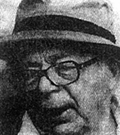题目内容
4.The technology is great.Without it we wouldn't have been able to put a man on the moon,explore the ocean's depths or eat microwave sausages.Computers have revolutionized our lives and they have the power to educate and pass on knowledge.But sometimes this power can create more problems than it solves.Every doctor has had to try their best to calm down patients who've come into their surgery waving an Internet print-out,convinced that they have some rare incurable disease,say,throat cancer.The truth is usually far more ordinary,though:they don't have throat cancer,and it's just that their throats are swollen.Being a graduate of the Internet"school"of medicine does not guarantee accurate self-health-checks.
One day Mrs.Almond came to my hospital after feeling faint at work.While I took her blood sample and tried to find out what was wrong,she said calmly,"I know what's wrong; I've got throat cancer.I know there's nothing you doctors can do about it and I've just got to wait until the day comes."
As a matter of routine I ordered a chest X-ray.I looked at it and the blood results an hour later.Something wasn't right."Did your local doctor do an X-ray?"I asked."Oh,I haven't been to the doctor for years,"she replied."I read about it on a website and the symptoms fitted,so I knew that's what I had."
However,some of her symptoms,like the severe cough and weight loss,didn't fit with it-but she'd just ignored this.
I looked at the X-ray again,and more tests confirmed it wasn't the cancer but tuberculosis (肺结核)-something that most certainly did need treating,and could be deadly.She was lucky we caught it when we did.
Mrs.Almond went pale when I explained she would have to be on treatment for the next six months to ensure that she was fully recovered.It was certainly a lesson for her."I'm so embarrassed,"she said,shaking her head,as I explained that all the people she had come into close contact with would have to be found out and tested.She listed up to about 20,and then I went to my office to type up my notes.Unexpectedly,the computer was not working,so I had to wait until someone from the IT department came to fix it.Typical.Maybe I should have a microwave sausage while I waited?
63.Mrs.Almond talked about her illness calmly becauseA
A.she thought she knew it well
B.she had purchased medicine online
C.she graduated from a medical school
D.she had been treated by local doctors
64.It was lucky for Mrs.AlmondD
A.to have contacted many friends
B.to have recovered in a short time
C.to have her assumption confirmed
D.to have her disease identified in time
65.Mrs.Almond said"I'm so embarrassed"(Para.7)becauseB
A.she had distrusted her close friends
B.she had caused unnecessary trouble
C.she had to refuse the doctor's advice
D.she had to tell the truth to the doctor
66.By mentioning the breakdown of the computer,the author probably wants to proveC
A.it's a must to take a break at work
B.it's vital to believe in IT professionals
C.it's unwise to simply rely on technology
D.it's a danger to work long hours on computers.
分析 科技是强大的,电脑已经彻底改变了我们的生活,他们有教育和传递知识的能力,但有时这个力量创造出比它所能解决的问题更多的问题.文中的阿蒙德夫人通过上网查看自己的病症而自认为得了喉癌,而实际上是肺结核.所以我们不能单一的依赖网络.
解答 63.A 细节理解题.根据文章第三段"I know what's wrong;I've got throat cancer.I know there's nothing you doctors can do about it and I've just got to wait until the day comes."可知,她对自己的病十分了解,故选A.
64.D 细节理解题.根据文章第六段第一句"I looked at the X-ray again,and more tests confirmed it wasn't the cancer but tuberculosis"我再一次看了X光片,更多的测试证实这不是癌症,而是肺结核.可知,阿蒙德夫人很幸运能及时确诊病情,故选D.
65.B 句意理解题.根据第四至六段的内容,特别是第五段"I looked at the X-ray again,and more tests confirmed it wasn't the cancer but tuberculosis"可知,阿蒙德夫人她自认为得了喉癌,而实际上是肺结核,医生为了确认病情,不得不作了一些有关喉癌的检查.所以让医生做了一些不必要的事,多忙活了一会儿,所以她感到很难为情,故选B.
66.C 推理判断题.根据文中阿蒙德夫人通过上网查看自己的病症而自认为得了喉癌,而实际上是肺结核.以及文章最后一段"shaking her head,as I explained that all the people she had come into close contact with would have to be found out and tested."可知,只是依赖网络技术是不明智的,故选C.
点评 本文是健康环保类阅读,考查学生对细节的理解把握和推理判断能力,做题时一定要找到文章中的原句,和题干进行比较,再做出正确选择.在做推理判断题时不要以个人的主观想象代替文章的事实,要根据文章事实进行合乎逻辑的推理判断.

| A. | graduated | B. | graduate | C. | will graduate | D. | had graduated |
| A. | which | B. | who | C. | when | D. | where |
| A. | Not receiving | B. | Receiving not | ||
| C. | Not having received | D. | No having received |
 Many experts say that Billy Wilder changed the history of American movies.He is often called the best movie maker Hollywood has ever had.
Many experts say that Billy Wilder changed the history of American movies.He is often called the best movie maker Hollywood has ever had.